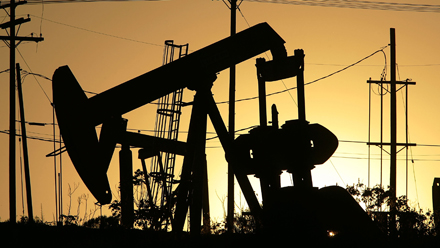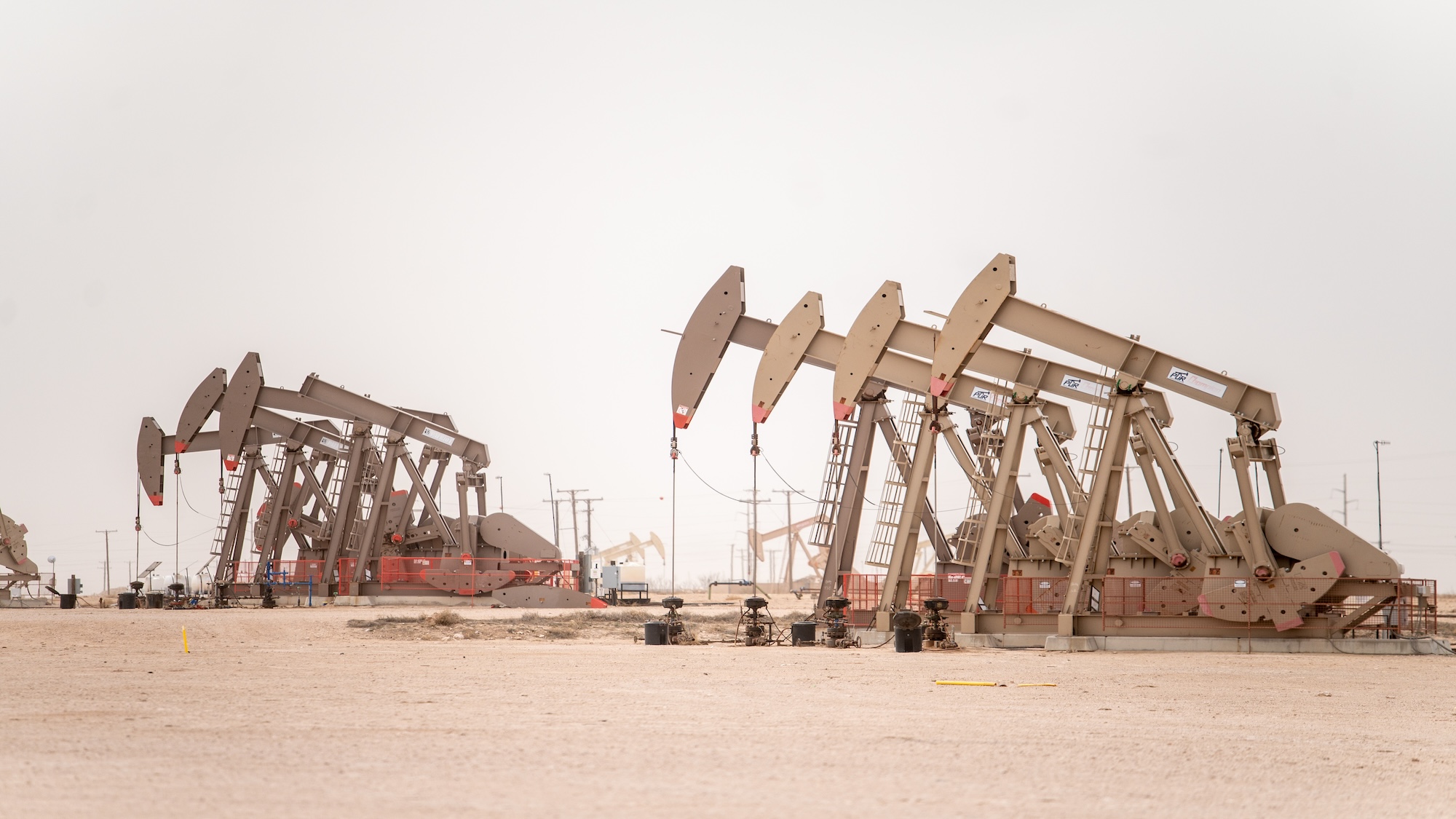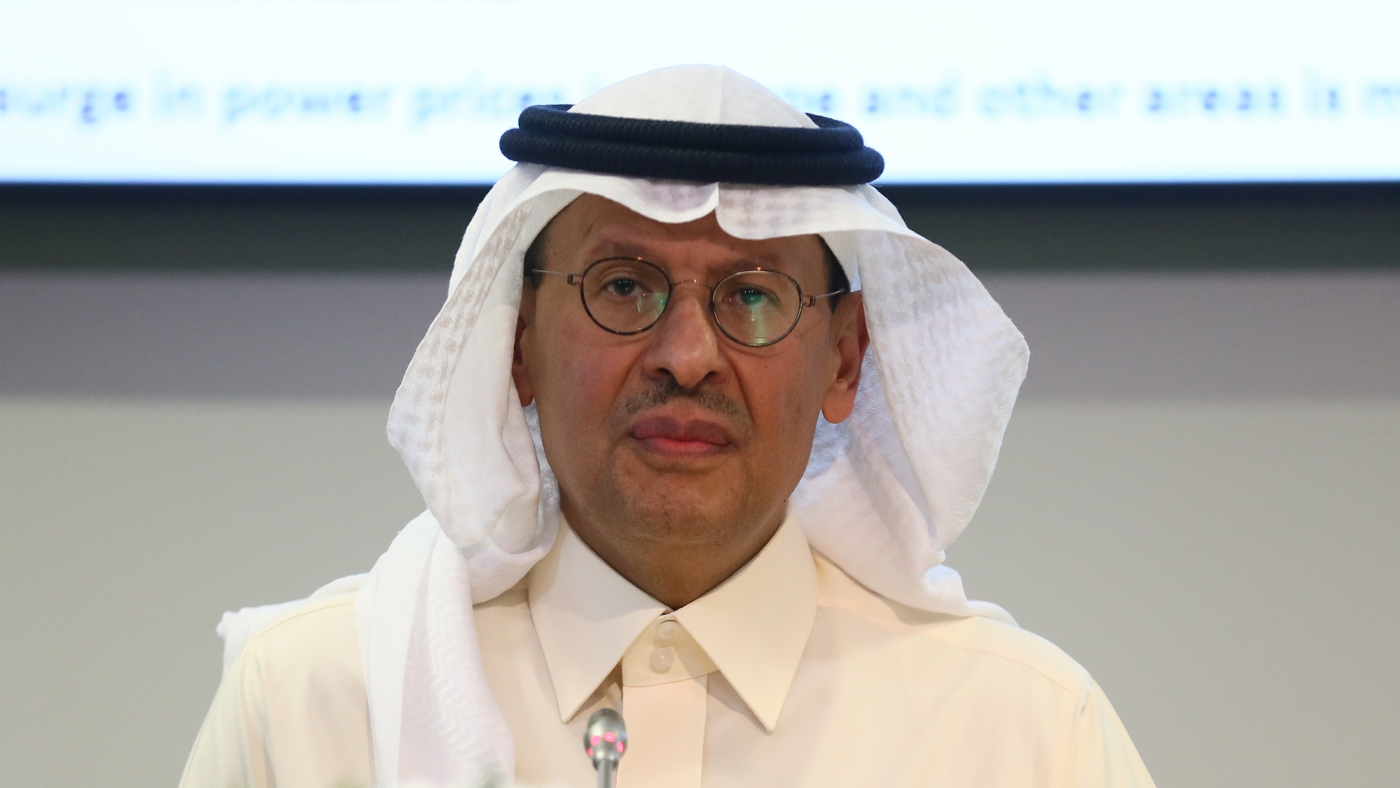Oil discovered in West Sussex 'could produce billions of barrels'
Most experts warn that fracking would be needed to extract commercial quantities of oil from the region

A free daily email with the biggest news stories of the day – and the best features from TheWeek.com
You are now subscribed
Your newsletter sign-up was successful
The discovery of up to 100 billion barrels of oil near Gatwick airport could produce 10 to 30 per cent of the UK's oil demand by 2030, according to exploration firm UK Oil & Gas Investments (UKOG).
Exploration near the Horse Hill area of West Sussex has revealed that the area could hold up to 158 million barrels of oil per square mile.
"We think we've found a very significant discovery here, probably the largest [onshore in the UK] in the last 30 years, and we think it has national significance," Stephen Sanderson, UKOG's chief executive, told the BBC.
The Week
Escape your echo chamber. Get the facts behind the news, plus analysis from multiple perspectives.

Sign up for The Week's Free Newsletters
From our morning news briefing to a weekly Good News Newsletter, get the best of The Week delivered directly to your inbox.
From our morning news briefing to a weekly Good News Newsletter, get the best of The Week delivered directly to your inbox.
Sanderson said the discovery would "comprehensively change the understanding of the area's potential oil resources".
He added: "Based on what we've found here, we're looking at between 50 and 100 billion barrels of oil in place in the ground.
"We believe we can recover between 5 per cent and 15 per cent of the oil in the ground, which by 2030 could mean that we produce 10 per cent to 30 per cent of the UK's oil demand from within the Weald area."
According to the BBC, most experts say the only way the oil can be extracted will be by fracking, or hydraulic fracturing – a controversial process that involves pumping sand, water and chemicals into rocks at high pressure to release gas and oil deposits trapped within them.
A free daily email with the biggest news stories of the day – and the best features from TheWeek.com
Concerns over fracking caused large-scale protests by local residents and environmentalists in 2013 when Cuadrilla was issued a permit to use the process to extract shale gas from a well near Balcombe.
But UKOG sought to allay fears insisting that it does not believe fracking will be required to drill what it describes as a “world-class potential resource".
It said the rocks at Horse Hill are naturally fractured, which "gives strong encouragement that these reservoirs can be successfully produced using conventional horizontal drilling and completion techniques".
-
 Corruption: The spy sheikh and the president
Corruption: The spy sheikh and the presidentFeature Trump is at the center of another scandal
-
 Putin’s shadow war
Putin’s shadow warFeature The Kremlin is waging a campaign of sabotage and subversion against Ukraine’s allies in the West
-
 Media: Why did Bezos gut ‘The Washington Post’?
Media: Why did Bezos gut ‘The Washington Post’?Feature Possibilities include to curry favor with Trump or to try to end financial losses
-
 How might the Israel-Hamas war affect the global economy?
How might the Israel-Hamas war affect the global economy?Today's Big Question Regional escalation could send oil prices and inflation sky-high, sparking a worldwide recession
-
 Recent mega-mergers could signal a turning point for the US oil industry
Recent mega-mergers could signal a turning point for the US oil industryTalking Point Both Chevron and Exxon have recently spent billions to acquire smaller oil companies
-
 Has Saudi Arabia lost control of oil prices?
Has Saudi Arabia lost control of oil prices?Today's Big Question Kingdom goes it alone to cut production, risking tension with US and reigniting cooling inflation in Europe
-
 US angered by Opec+ oil cut
US angered by Opec+ oil cutSpeed Read Energy prices to rise further as producers slash supply by two million barrels a day
-
 Labour shortages: the ‘most urgent problem’ facing the UK economy right now
Labour shortages: the ‘most urgent problem’ facing the UK economy right nowSpeed Read Britain is currently in the grip of an ‘employment crisis’
-
 Will the energy war hurt Europe more than Russia?
Will the energy war hurt Europe more than Russia?Speed Read European Commission proposes a total ban on Russian oil
-
 Will Elon Musk manage to take over Twitter?
Will Elon Musk manage to take over Twitter?Speed Read The world’s richest man has launched a hostile takeover bid worth $43bn
-
 Shoppers urged not to buy into dodgy Black Friday deals
Shoppers urged not to buy into dodgy Black Friday dealsSpeed Read Consumer watchdog says better prices can be had on most of the so-called bargain offers